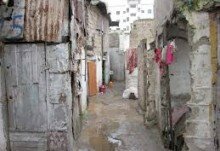Ireland, Israel, personal, political

Lyor Shternberg’s poetry does not indulge in innovative experimentation in form, language or subject matter, and is in no way radical. It speaks to the reader without obfuscation or flattery, without being overly poetical or attempting to market the “shocking truth”.
At the same time, these poems reveal the poetic, experiential and cultural world Shternberg has in common with major writers of the latest generation of Israeli poets. They all share a deep affinity with Europe and European poetry (usually Anglo-Saxon but also French or ancient Greek), and conduct a dialogue with it, often because of the poet’s work as a translator. They have a sense of acute alienation with regard to anything smelling of nationalism or ideological sloganeering, together with a sincere desire to locate a sense of belonging to the Israeli scene. They share a tendency towards political writing, critical of public space and discourse, all the while oblivious of specific social, economic and ethnic problems. Contemporary Israeli poetry includes the confessional lyric circling round the melancholic loneliness of the self, balanced by an opposing tendency to flee from the individual self into prose or transposition of the (modernist) self in images created by the culture industry. It sees writing as a way of coping with the world at the same time that it bears an outspoken contempt for writing, which it views as compulsive chatter. It favours vernacular poetry devoid of metaphor or idiom but at the same time is open to the variety of languages available in today’s Israel, including the adoption of local dialects. This partial list of characteristics is also relevant to writers focusing on their own struggle for recognition of their marginal (ethnic, sexual or religious) identity.
This is Shternberg’s third published collection, and he is a full, distinguished participant in the poetic profile sketched out above. We see this, as elsewhere, in the self fully aware of its own limitations, defining the place from which the poetry is written. [In earlier books] closeness and obligation to family members made it difficult for him to develop a free, personal voice. In his new poems, however, there is neither emotional responsibility nor family relationships. This is a position from which his poetry is likely to take flight, to turn its attention to the gap between inner and outer worlds, between desire and its fulfillment, between language and the things it would seem to represent.
[ . . . ]
Distance recurs in Shternberg’s political poetry. His preference for dealing with reality only indirectly is expressed for example in the image of the helicopter hovering in the Jerusalem sky on the day the Second Intifada broke out, as an alarming sign; or in the description of a prison in which Palestinian prisoners are being held, focusing on the sleep that threatens to overcome the guard on night duty and the soldiers playing shesh-besh. This choice of a metonymic, tangential, apparently marginal representation evokes Meir Wieseltier’s political poetry [and] his metonymic style. [ . . . ] Like Wieseltier, Shternberg manages to deflect attention to the dark stains of reality, not only those issues subject to public debate. [ . . . ] Shternberg’s aim is to highlight the ideological-cultural worldview which shapes Israeli nationalism:
We are all fighters in desert units,
practiced in survival, loyal
to the will of dispatches arriving
via secret channels, our paths
known, the goals clear
but not ours, and weapons adapted
like our eyes and skin
to the sand storms
slowly entering consciousness.
(from ‘Apropo one of the wars’)
It soon becomes clear that nationalism, and the nationalist, are merely narratives, shared language that impinges on every private space, penetrating especially via television screens and the pages of the newspaper. This poet also loses faith in the power of poetry to present an alternative discourse and language. The ability to speak at the height of “bad times” from a place where one goes on living, shopping at the grocer’s and reading newspapers, expresses a semblance of freedom. But, fundamentally, poetry is self-deception, chatter which takes the edge off the pain (as in ‘Jerusalem Day 2003’). Shternberg’s poetry is directed at the individual, civilian fabric which nationalism penetrates in language, slogans and reality-constructing media which are capable of negating anything incompatible with their ‘representation’. The poet is aware that not only linguistic expression but “also the rage and fear, let’s face it, are second hand / merchandise” (‘Bad days’). What is left for us but to cast doubt both on these feelings and their representation?
Indeed, beyond any political stance, Shternberg’s poetry consistently reaches the same conclusion about the presence of language and narrative negotiating between the self and the world. Distance, appearing as emotional compartmentalisation or personal inclination, connects with a complex structure of transposition of the world through language. The poetry cycle ‘Memories of the English Department’ exemplify the need for “English Literature” as an imaginary escape route from his suffocating Jerusalem existence. Quotations from English poetry function as a second voice accompanying the voice of the poet and giving him essential support. At the same time, he admits to the “mildly nauseating” obstructive power of the foreign citation [in ‘Modern Poetry’ it is the work of Patrick Kavanagh, whom Shternberg has translated into Hebrew – ed.].
Shternberg’s decision to translate Irish poetry is a kind of attempt to escape this obstructive power, although it is clearly not his intention to forgo dialogue with other poets. Citation and translation – this negotiation which seems to be imposed upon ‘natural’, direct expression, demonstrates one’s sensitivity to the existence of foreign texts within a discourse of the self, along with the distance between various voices and the many tones comprising the “voice of the poet”.
The beautiful cycle of poems which ends the book, ‘Ireland: an album of sonnets’ expresses this distance not only in the relations between the poet and the world, or his relation to the cultural heritage within which he writes, but also the inner relationship, as it were, between experience and memory. Ireland represents Elsewhere, a place where the Hebrew from which the poet is fleeing is absent. But to imagine that one can get away so easily from the language and culture which we carry with us is naïve. For one thing, such a journey follows maps and guidebooks, historical knowledge which distract the impartial gaze (‘Cashel of Kings’). It is guided by a passion for meaning which always necessitates the intervention of linguistic representation: “And to what may we compare the soft whiteness / sailing beside us?” (‘Connor Pass’).
[ . . . ]
One wonderful poem in the cycle underscores the role of abstract structure in the form of a ruined house, the presence of the past in the present moment, the slow movement technological cogs within a natural process, the existence of the image within a language of theoretical facts as well as the existence of the picture within what might otherwise be understood as unmediated reality: “Only a brick structure / remains of the big house, beside a garden surrounded by a wall / bathed in sun from another century. An avenue of red / oaks parts in slow gear. Leaves fall / into the car mirror and we too, two cold shadows / pull slowly away and fade out of the picture” (‘Last Day on the Island’).
There are, however, flashes of incidental encounter with a reality beyond words: nameless places, beauty which demands that one “abandon plans” (‘Killarney’). Indeed, Shternberg’s method is to foreground his preoccupation with cultural and linguistic representation itself, while relinquishing a naive wish to deviate from these limitations. His book is titled The Page is a Landscape and has a photograph of a [shoreline with mountains] on the cover. Clearly one cannot distinguish between the two.
Translated and excerpted from a review in Haaretz Books, 8 June 2005. Yochai Oppenheimer is a poet and university lecturer. His book Political Poetry in Israel was published by Magnes Press in Hebrew in 2003.




